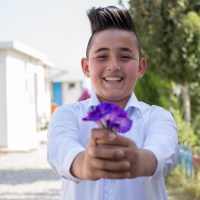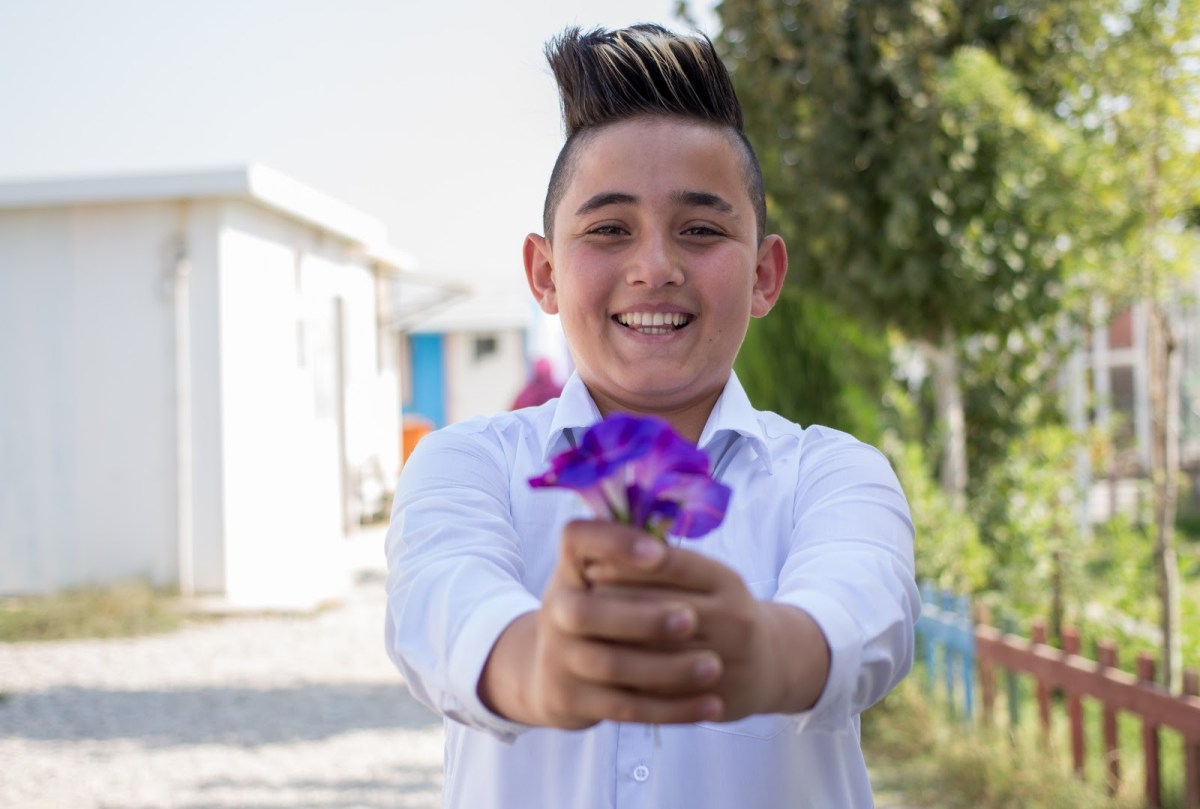There are 7.4 million school-age refugee children globally.
Of that number, over half—4 million—aren’t in school.
Refugee kids who don’t go to school are up against incredible odds. They are more likely to be recruited (or forced) into armed groups, exploited sexually, and forced into work or early marriage.
You can break this cycle.
You can help continue their education.
You can provide educational play therapy in a safe space, giving kids a place to heal, to learn, to grow, to dream. A place to be safe. A place to just be kids.
In a life wrecked by war and violence, you can provide education, community, and support.
Education and Support
We’re providing a space in Iraq where kids can keep up with their education.
Habesh is originally from Syria. At 17 years old, he dropped out of school to go to work with his father and help support his family. But Habash came home so tired he couldn’t do much else. Staff at the center visited Habesh and his family to speak with them about the importance of education and the difficulties Habesh could face if he didn’t finish his schooling.
“I really did want to go to school to learn more and be creative,” Habesh said of his time at our space for kids just like him. “I have learned a lot of different things here. This place has helped me a lot especially now that they have encouraged my family to let me go back to school and postpone work until I finish my studies. Also it is so good to live life with my friends who are the same age as me.”
But kids at our center don’t just receive education. They also receive critical support from trained staff who specialize in protecting kids from neglect, child labor, domestic violence, abuse, and more. Social workers go to the homes of kids, talk to families, and connect with children so they can do more than just learn—so they can thrive.
We plan to launch a similar program in Mexico for children of asylum seekers. Because of the violence in some parts of Mexico, it’s not safe for kids to leave their shelters to come to a center. So we’ll bring educational, therapeutic play to them, right at their shelter, while their parents receive job training in tech skills.
Hope
Many refugee kids have never had a real home. They’ve been displaced their entire lives. This is all they know.
For others, they remember home, but there is no hope there. They cannot return home because there is no home to return to, or because their communities are still unsafe. For some, home is even more dangerous now than it was when they fled.

But life as a refugee doesn’t afford you the same opportunities. There are language and cultural barriers to navigate where you live now, not to mention financial difficulties. On top of all this, kids deal with the trauma of war, losing home and loved ones, seeing violence, living in fear.
Ahmed, 17, told us, “When we first came we were so traumatized. However, we are now creating new positive memories here at this center—singing, music and dancing together, and more. This center has really helped me to use my energy in a good way—instead of getting involved in not so good things, I’ve learned and gotten involved many different and interesting things. Whenever I feel stressed, I come to the center and then I can feel relaxed.”
Families do their best to create a new home in the refugee camp, but it will never be the home they left. They are far from family and friends. And it is not safe, like a home.
When we ask kids about their experience at our center, we always ask if they feel safe. They often pause and ask, “Do you mean in this center? Or do you mean in the camp?”
The distinction is important. The fact is, a lot of kids only feel safe at home and in our center—not in the camp.
Our center gives our kids a safe place to go. So they can process trauma. So they can learn new things. So they can explore and be creative. So kids can just be kids.
![]()
Hopelessness is one of the root causes of war.
You can give kids something even more powerful than food or shelter. You can bring hope in the midst of a hopeless refugee camp. To shelters on the US-Mexico border.
When you’ve lost everything, hope is a powerful thing. It can create a new future. It can empower dreams. It can rebuild a community.
Refugee kids are resilient. They have fled bombs and gang violence. They have seen death. They have endured loss and hardship.
But they are still kids.
Kids who like to sing songs and play with playdough. Kids who dream of being astronauts and dentists and doctors, kids who want a safe place to be with friends, to express themselves, to dream.


